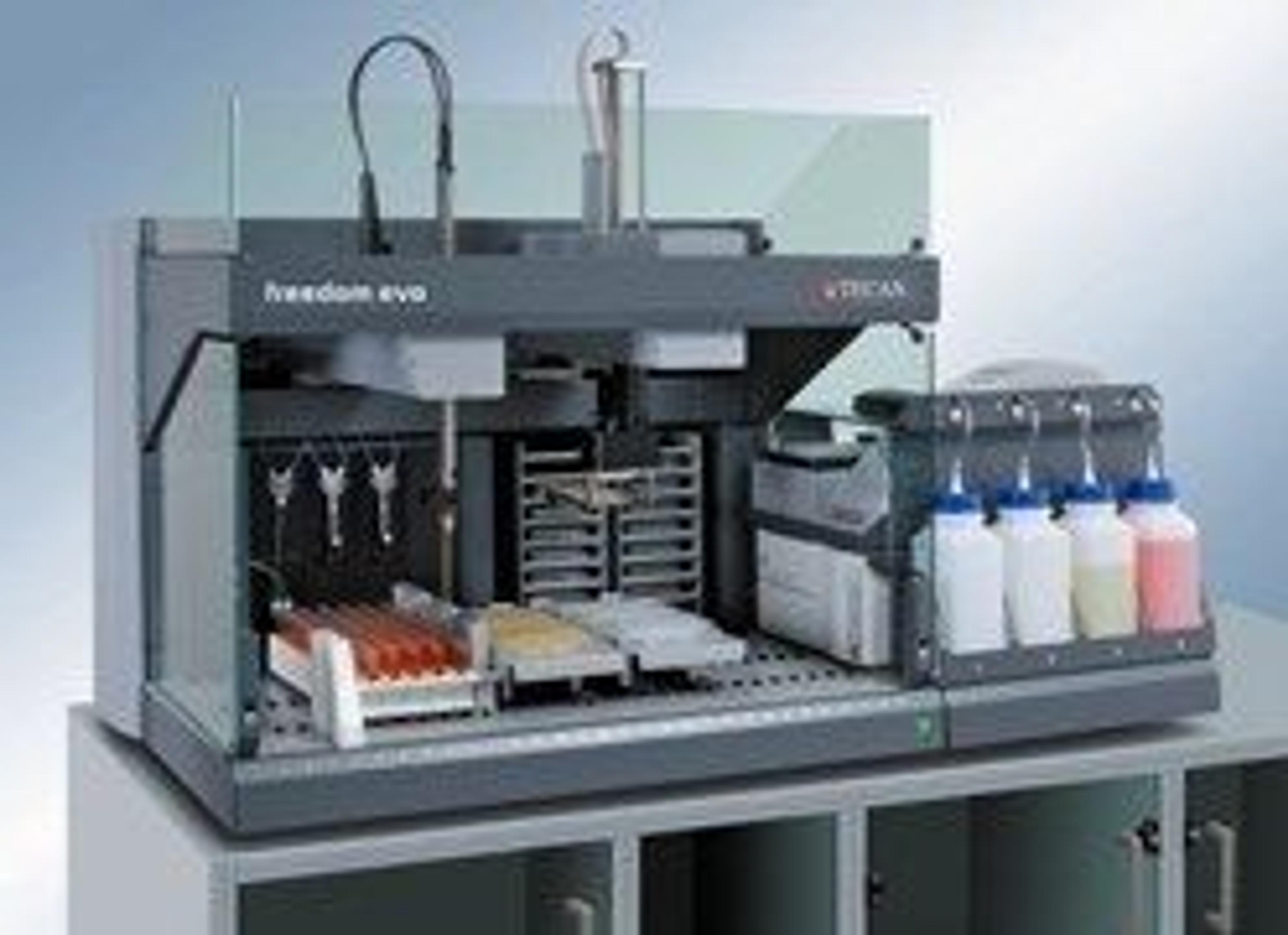Freedom to Evolve with Tecan’s Freedom EVO® 75
9 Mar 2016Researchers at the Complutense University of Madrid are using directed evolution techniques to develop new enzymes for a variety of bioprocessing applications.
Taking advantage of the walkaway liquid handling capabilities of a Freedom EVO® 75 workstation, the university’s Enzyme Biotechnology Group – headed by Dr Isabel de la Mata – has been able to investigate ~4,000 Rhodococcus mutants for penicillin acylase and N-acyl homoserine lactone acylase activity, conducting over 190,000 assays in the primary screen alone.
Dr de la Mata explained: “We are interested in enzymes with novel activities for use in the production of semi-synthetic antibacterial agents, such as β-lactam antibiotics, to overcome the resistance mechanisms which are becoming increasingly prevalent in nosocomial pathogens. The success of these molecular evolution methods depends on the ability to investigate large numbers of clones and, using our Freedom EVO 75 platform, we have been able to develop a robust high throughput assay for screening Rhodococcus mutants in a 96-well microplate format. This type of project simply wouldn’t have been possible to perform manually, and the technical support has been excellent.”
Rodrigo Velasco, a PhD student in the group, commented: “Thanks to the throughput capabilities of the Freedom EVO platform, each sample could be simultaneously assayed under several operational conditions, which would be very complex and difficult to achieve manually. This provides invaluable information to help us design the downstream stages of the research.”

